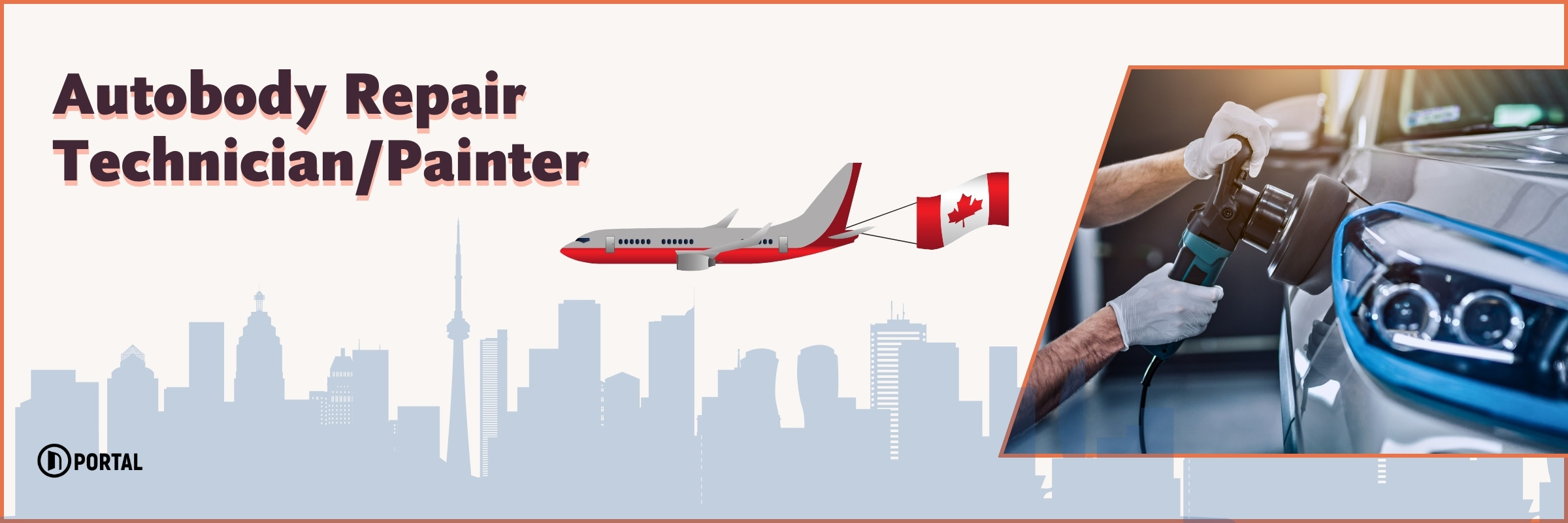
Work as a panel beater (autobody repair technician)/painter for Canadian auto repair shops, dealerships, and collision centers.
This position is eligible under two Canadian work permit programs:
Francophone Mobility Work Permit: For bilingual applicants. This option does not require an LMIA, making the process faster and simpler.
Regular LMIA Work Permit: For applicants who do not qualify for Francophone Mobility. This requires a Labour Market Impact Assessment (LMIA) from the employer. French is not required, but English is required.
Canada has strong demand for skilled trades in the automotive industry. This role is ideal for experienced panel beaters seeking stable employment, competitive wages, and pathways toward permanent residency.
As a panel beater (autobody repair technician) in Canada, you will:
Repair damaged vehicle body panels by hammering out dents, welding, and filling
Replace damaged parts such as doors, fenders, hoods, and bumpers
Straighten vehicle frames using specialized equipment
Remove, repair, and reattach body panels and parts
Sand, prime, and prepare surfaces for painting
Follow repair orders and estimate materials, labor, and timelines
Maintain safety standards and ensure high-quality workmanship
Collaborate with painters and other technicians to complete full repairs
Use modern tools, welding equipment, and computerized measuring systems
Language:
Francophone Mobility: Good English + B1 level French test (or proof of French-language education)
LMIA Work Permit: Good English (French not required, but an asset)
Education: Minimum high school diploma; technical or vocational training in autobody repair is an asset
Experience: At least 1–2 years of professional autobody repair or panel beating experience
Skills:
Strong knowledge of vehicle structures and repair techniques
Proficiency with welding, sanding, and autobody tools
Ability to read and follow repair orders and technical manuals
Attention to detail and commitment to high-quality repairs
Physical stamina and ability to handle heavy parts
Safety awareness and teamwork
Applicants may qualify under Francophone Mobility (no LMIA required) or LMIA Work Permit (employer applies for LMIA)
Once hired, immigration consultants will assist with the work permit process and service fees will be applied
Yes. Panel beater jobs usually fall under TEER 3, which is PR-eligible. Work experience in this trade can count toward the Canadian Experience Class or Provincial Nominee Programs (PNPs).
Autobody repair shops, automotive dealerships, collision centers, and fleet maintenance companies across Canada hire panel beaters.
Francophone Mobility: For French-speaking applicants. Faster process, no LMIA required, less paperwork for employers, lower service fees.
LMIA Work Permit: For non-Francophone applicants. Requires employer to prove no Canadian worker is available. More complex, takes longer, and usually involves higher service fees.
Work permits are usually issued for 1–3 years, depending on your job offer. They can often be renewed if your employer extends your contract.
Yes, but you will need to apply for a new work permit tied to your new employer.
Absolutely. Our team assists with job matching, paperwork, the French test (for Francophone applicants), LMIA processes, and your entire work permit application.
The process — from job offer to receiving your work permit — can take up to 1 year, depending on whether you apply under Francophone Mobility or LMIA, your profile, employer response time, and visa processing times.